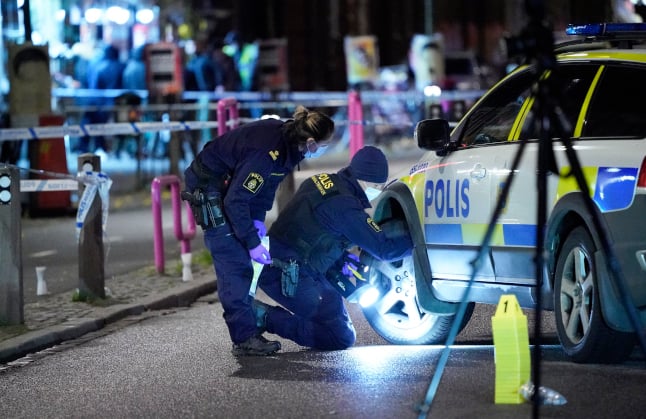Mats Löfving, head of the police's national operations department Noa, on Sunday ordered police to treat the wave of violent crime in recent weeks as a so-called “special national incident”.
This means creating a temporary task force that is given increased powers, access to resources and focuses only on the incident. Löfving appointed Stefan Hector, who led the police units that worked during the terror attack on Drottninggatan in Stockholm in 2017, to command the detail.
The focus is on “serious organized crime that culminates in homicides with shootings and the use of explosives”, said Noa in a statement. More was to be revealed at a press conference on Monday.
The decision comes after a 15-year-old boy was shot dead in Malmö's Möllevångtorget square on Saturday evening, one of the busiest times of the week for the area's many bars and restaurants.
But it also follows an unprecedented increase in the use of explosives in Sweden, which has seen the national bomb squad called out to around 100 blasts this year – more than double of last year.
There have been no deaths linked to these blasts, which have varied in size with some the equivalent of large fireworks and others ripping apart the facade of apartment buildings.
But police have said “it's pure luck” that there have not been more serious injuries.
Sweden's crime rate remains one of the lowest in the world. Despite a rise in murders linked to gangs since the 1990s, there has been a reduction in murders linked to domestic violence, hate crime and 'spontaneous fights', meaning the overall homicide rate is lower today than in the early 1990s.
But rise in criminal gangs willing to resort to fatal violence is still a cause for concern both at home and abroad. Earlier this year Denmark reintroduced border checks with Sweden after two bombings in Copenhagen which were linked to a Swedish gang conflict.
Law and order, including crime reports, accounted for 35 percent of TV news coverage between August and September this year and the subject often dominates political debate, including ahead of last year's general election.
Vocabulary
special incident – (en) särskild händelse
crime – (ett) brott
violence – våld
police – polis
shooting – (en) skjutning/skottlossning
We're aiming to help our readers improve their understanding of the Swedish-language news by translating vocabulary from some of our articles. If you have any feedback, please let us know.



 Please whitelist us to continue reading.
Please whitelist us to continue reading.
Member comments